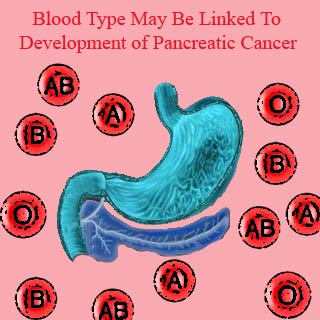
It is estimated that in the U.S., around 40,000 people get diagnosed with pancreatic cancer every year. It is stated that the risk of people developing this type of cancer is relatively quite low. However people with blood types A, B, or AB were more likely to develop this disease as compared to people with blood type O.
Study lead author, Brian Wolpin, MD, MPH, says that, “Except for several rare familial syndromes, the genetic factors that raise or lower an individual’s risk for pancreatic cancer are largely unknown. Studies done several decades ago suggested a link between blood type and the risk of various malignancies, including pancreatic cancer, but they were limited by the fact that they ‘looked back’ at cancers that had already occurred and involved relatively few cases. We wanted to see if the association held up using modern patient cohorts and research techniques.â€
It was discovered that in comparison to people having type O blood, those having type A blood had 32 percent higher risk of developing pancreatic cancer; while people having type AB blood had 51 percent higher risk; and those with type B blood had 72 percent higher risk of developing pancreatic cancer. However since the occurrence of this type of cancer is very low, the chances that their screening tests will be based on blood types alone are very unlikely. These study findings are considered important mainly due to their data provided about the inner workings of this particular disease.
Wolpin says that, “The association between blood type and pancreatic cancer risk provides a new avenue for getting at the disease’s underlying biological mechanisms. Understanding the biology will put us in a better position to intervene so the cancer doesn’t develop or progress.â€
Having said this, it is also pointed out that their findings do not provide a direct link between blood type and the development of pancreatic cancer. The study findings were based on an evaluation of the connection between blood type and the occurrence of pancreatic cancer in subjects of two health-tracking studies; namely, the Nurses’ Health Study and the Health Professionals Follow-Up Study.
Their findings are published online in the Journal of the National Cancer Institute.
